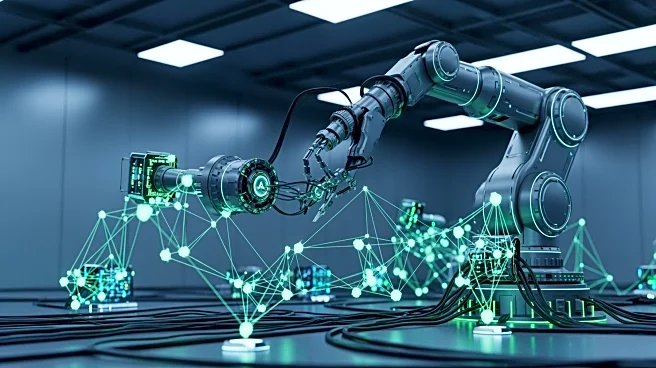What's Happening?
In the evolving tech landscape, data has become a strategic asset rather than a mere byproduct of operations. Machine builders are increasingly integrating artificial intelligence (AI) and machine learning
(ML) into their processes, but many face challenges due to outdated data infrastructures. A Deloitte study indicates that 91% of companies plan to address data challenges within the next year, highlighting the urgency of data readiness. Issues such as data silos, inconsistency, and fragmentation hinder efficient decision-making and collaboration. Overcoming these barriers is crucial for fostering an integrated environment where data can be shared effectively across all organizational levels.
Why It's Important?
The modernization of data infrastructure is vital for machine builders to fully leverage AI and ML capabilities. Data silos prevent timely sourcing of parts, tracking process performance, and training AI models, leading to inefficiencies. By addressing these issues, organizations can enhance collaboration, streamline processes, and improve decision-making. A robust data strategy ensures AI systems are trained on consistent and accurate information, leading to better insights and impactful decisions. This transformation is essential for companies to remain competitive and responsive to market demands, ultimately driving innovation and productivity.
What's Next?
Organizations are encouraged to connect existing data across systems and departments, consolidate legacy systems, and create unified data models. This approach will enhance data accessibility and reliability, facilitating better collaboration and decision-making. Emphasizing data governance and ownership will ensure data integrity and accountability. As companies modernize their digital threads, they can adapt to emerging AI capabilities and innovate continuously. Collaboration between IT, engineering, and operations is crucial to streamline data management processes and create an ecosystem where smart machines thrive.
Beyond the Headlines
The integration of AI into machine building extends beyond technology implementation; it involves creating service-oriented business models that enhance machine productivity and reduce downtime. By prioritizing data accessibility, organizations can empower smart machines to make informed decisions and optimize operations. This shift towards data-driven strategies will foster innovation and provide a competitive edge in the marketplace.










